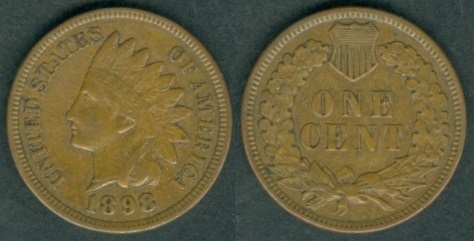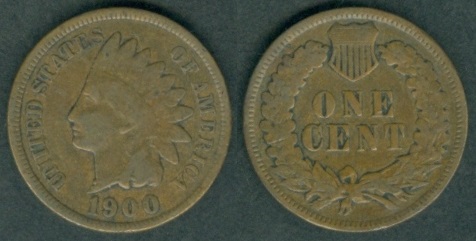 |
 |
| USA Coinage: 1897 - 1901 | ||||
| under President: William McKinley | ||||
| William McKinley (January 29, 1843 – September 14, 1901) was the 25th President of the United States from March 4, 1897 until his assassination in September 1901, six months into his second term. McKinley led the nation to victory in the Spanish–American War, raised protective tariffs to promote American industry, and maintained the nation on the gold standard in a rejection of inflationary proposals. | ||||
| McKinley was the last president to have served in the American Civil War, and the only one to have started the war as an enlisted soldier, beginning as a private in the Union Army and ending as a brevet major. After the war, he settled in Canton, Ohio, where he practiced law and married Ida Saxton. In 1876, he was elected to Congress, where he became the Republican Party's expert on the protective tariff, which he promised would bring prosperity. His 1890 McKinley Tariff was highly controversial; which together with a Democratic redistricting aimed at gerrymandering him out of office, led to his defeat in the Democratic landslide of 1890. He was elected Ohio's governor in 1891 and 1893, steering a moderate course between capital and labor interests. With the aid of his close adviser Mark Hanna, he secured the Republican nomination for president in 1896, amid a deep economic depression. He defeated his Democratic rival, William Jennings Bryan, after a front-porch campaign in which he advocated "sound money" (the gold standard unless altered by international agreement) and promised that high tariffs would restore prosperity. | ||||
| The United States presidential election of 1896 was the 28th quadrennial presidential election, held on Tuesday, November 03, 1896. It was the climax of an intensely heated contest in which Republican candidate William McKinley (a former Governor of Ohio) defeated Democrat William Jennings Bryan (a former Representative from Nebraska) in one of the most dramatic and complex races in American history. | ||||
| The United States presidential election of 1900 was the 29th quadrennial presidential election, held on Tuesday, November 06, 1900. The election was a re-match of the 1896 race between Republican candidate and incumbent President William McKinley and his Democratic challenger, William Jennings Bryan. The Republican Convention chose New York Governor Theodore Roosevelt as McKinley's running mate, since Vice-President Garret Hobart had died from heart failure in 1899. The return of economic prosperity and recent victory in the Spanish–American War for control of the Philippines helped McKinley to score a decisive victory, while Bryan's anti-imperialist stance and continued support for bimetallism attracted only limited support. | ||||
| After six months into 2nd term as President, Leon Frank Czolgosz concealed his gun in a handkerchief, and, when he reached the head of the line, shot McKinley twice in the abdomen at Temple of Music on September 06, 1901. In the days after the shooting McKinley appeared to improve. Unknown to the doctors, the gangrene that would kill him was growing on the walls of his stomach, slowly poisoning his blood. On the morning of September 13, McKinley took a turn for the worse. Relatives and friends gathered around the death bed. At 2:15 a.m. on September 14, President McKinley died. Theodore Roosevelt who was the vice President had rushed back and took the oath of office as president in Buffalo. | ||||
| Currency: Dollar = 100 cents | ||||
| Monetary System: Penny = Cent, Trime = 3 Cents, Nickel = 5 Cents, Dime = 10 Cents, Quarter = 25 Cents, Half Dollar = 50, Cents, Dollar = 100 Cents, Quarter Eagle = $2.50 Gold, Stella = $4.00 Gold, Half Eagle = $5.00 Gold, Eagle = $10.00 Gold and Double Eagle = $20.00 Gold. | ||||
|
Mint Marks: C – Charlotte, N.C., 1838-1861. CC – Carson City, NV, 1870-1893. D – Dahlonega, GA, 1838-1861. D – Denver, CO, 1906-present. O – New Orleans, LA, 1838-1909. P – Philadelphia, PA, 1793-present (coins without mintmark also belongs to Philadelphia). S – San Francisco, CA, 1854-present. W – West Point, NY, 1984-present. |
||||
|
|
||||
| 1898 | ||||
|
||||
| 1900 | ||||
|
||||
View below links on
coins issued during the Presidential rulers of United States:
|
||||
| Countries / Territories | ||||
| Chiefa Coins | ||||

